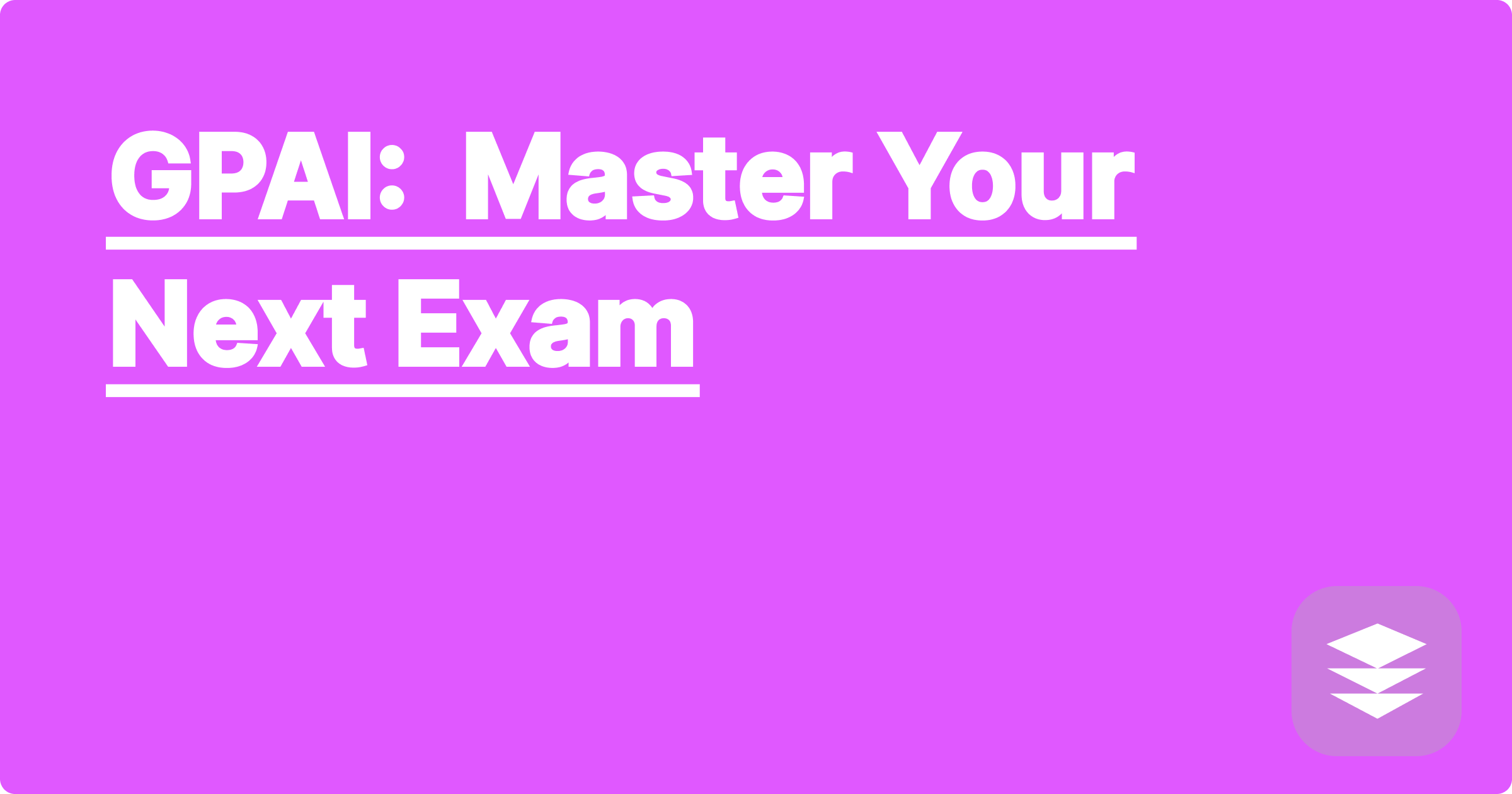
The rigorous demands of STEM education often leave students feeling overwhelmed, especially when facing upcoming exams. Balancing complex concepts, intricate formulas, and extensive research can be a daunting task. Fortunately, the rise of Generative Pre-trained Transformer (GPT) powered Artificial Intelligence (AI) offers a powerful new set of tools to help students navigate these challenges and master their next exam. These AI assistants can provide personalized support, streamline study processes, and unlock a deeper understanding of complex STEM subjects.
For STEM students and researchers, leveraging AI effectively can be a game-changer. It's no longer enough to simply memorize facts and formulas; true mastery requires a deep conceptual understanding and the ability to apply that knowledge to novel problems. AI tools can facilitate this deeper learning by providing on-demand explanations, generating practice problems, and offering personalized feedback. This empowers students to move beyond rote memorization and develop a more robust and flexible understanding of the material, ultimately leading to better exam performance and improved research outcomes.
STEM exams often present a unique challenge: they require not just memorization but also the ability to apply complex concepts and solve intricate problems. Students must grapple with abstract theories, intricate formulas, and vast amounts of information, often within tight time constraints. Traditional study methods, like rereading textbooks and reviewing notes, can be time-consuming and may not effectively address the need for deeper conceptual understanding. Furthermore, finding relevant practice problems and receiving timely feedback can be difficult, leaving students feeling unprepared and overwhelmed. This challenge is further compounded in research settings where keeping up with the latest advancements and synthesizing information from numerous sources can be a significant hurdle.
AI tools like ChatGPT, Claude, and Wolfram Alpha offer a new approach to tackling these challenges. ChatGPT and Claude excel at explaining complex concepts in clear, concise language, generating practice questions tailored to specific topics, and even providing personalized study guides. Wolfram Alpha, on the other hand, is a powerful computational engine that can solve complex equations, generate visualizations, and provide step-by-step solutions to mathematical problems. By integrating these tools into their study routine, STEM students can gain a deeper understanding of the material, practice applying their knowledge, and receive immediate feedback, ultimately boosting their exam performance and research efficiency.
Begin by identifying the specific topics or concepts you need to review. Then, use ChatGPT or Claude to generate concise summaries of these topics, focusing on key definitions, formulas, and underlying principles. You can also ask these AI tools to explain complex concepts in simpler terms or provide alternative explanations if you're struggling with a particular idea. Next, use ChatGPT or Claude to generate practice problems related to these topics. Specify the difficulty level and the types of problems you want to practice. As you work through these problems, use Wolfram Alpha to verify your answers, explore alternative solution methods, and visualize complex relationships. Finally, review your mistakes and use ChatGPT or Claude to explain the underlying concepts you may have missed. This iterative process of learning, practicing, and reviewing can significantly enhance your understanding and prepare you for exam success.
Consider a student studying calculus. They might use ChatGPT to explain the concept of derivatives and provide examples of how derivatives are used in real-world applications. They could then ask ChatGPT to generate practice problems involving different differentiation techniques. While working through these problems, they could use Wolfram Alpha to verify their solutions and visualize the graphs of the functions and their derivatives. For example, they could ask Wolfram Alpha to differentiate the function f(x) = x^3 + 2x^2 - x + 1 and plot both the function and its derivative. This combination of AI tools provides a comprehensive learning experience, allowing students to understand the theory, practice the techniques, and visualize the concepts. In a research setting, a researcher investigating the properties of a specific material could use Wolfram Alpha to calculate complex material properties based on given parameters or visualize the crystal structure of the material. They could also use ChatGPT to summarize recent research papers on the topic, helping them stay up-to-date with the latest advancements in the field.
To maximize the benefits of AI in your STEM studies, be specific and clear in your prompts. When asking ChatGPT or Claude for explanations or practice problems, clearly state the topic, the level of difficulty, and the specific type of problem you're looking for. Don't hesitate to ask follow-up questions or request alternative explanations if you don't fully understand a concept. When using Wolfram Alpha, ensure you're using the correct syntax and units. Remember that these AI tools are meant to supplement, not replace, your own learning and critical thinking. Use them as a guide to explore concepts more deeply, practice problem-solving, and gain a more comprehensive understanding of the material. Finally, be mindful of the limitations of AI. While these tools are incredibly powerful, they are not infallible. Always double-check your work and consult with your professors or TAs if you have any doubts or questions.
In conclusion, integrating AI tools like ChatGPT, Claude, and Wolfram Alpha into your study routine can significantly enhance your learning and exam preparation. By leveraging the power of AI, you can gain a deeper understanding of complex concepts, practice problem-solving techniques, and receive personalized feedback, ultimately setting yourself up for academic success. Start exploring these tools today and discover how they can transform your STEM learning experience. Experiment with different prompts and strategies to find what works best for you. Embrace the power of AI and unlock your full academic potential.
GPAI: Your Coding Homework Helper
GPAI: Streamline Your Research
GPAI: Differential Equations Solved